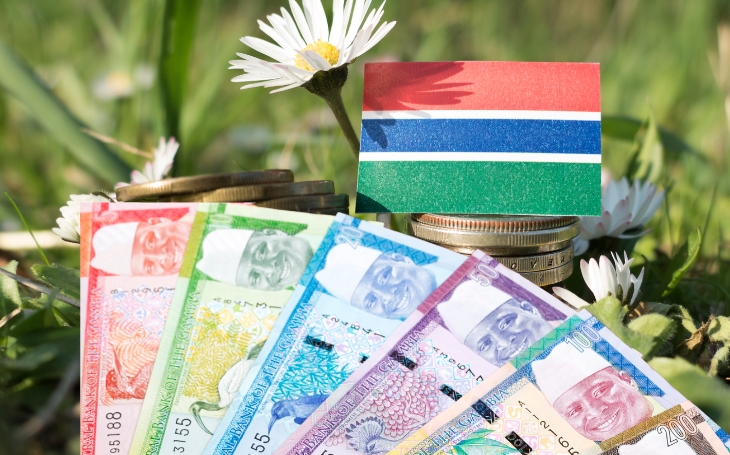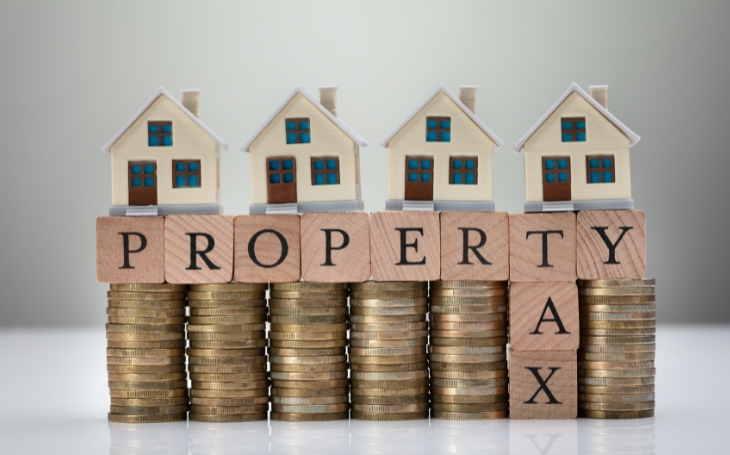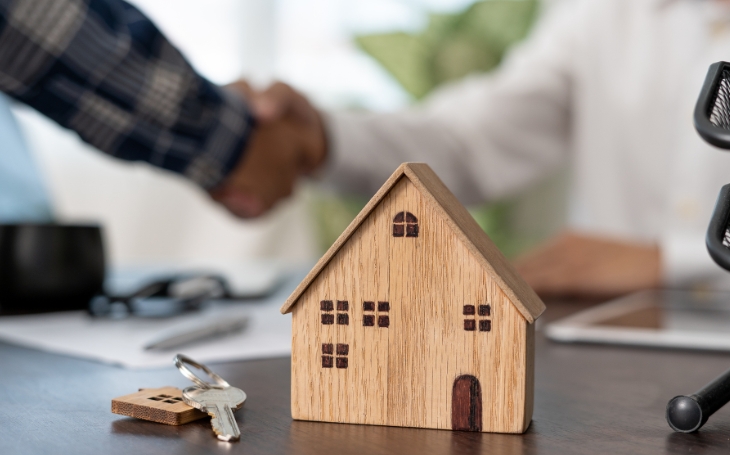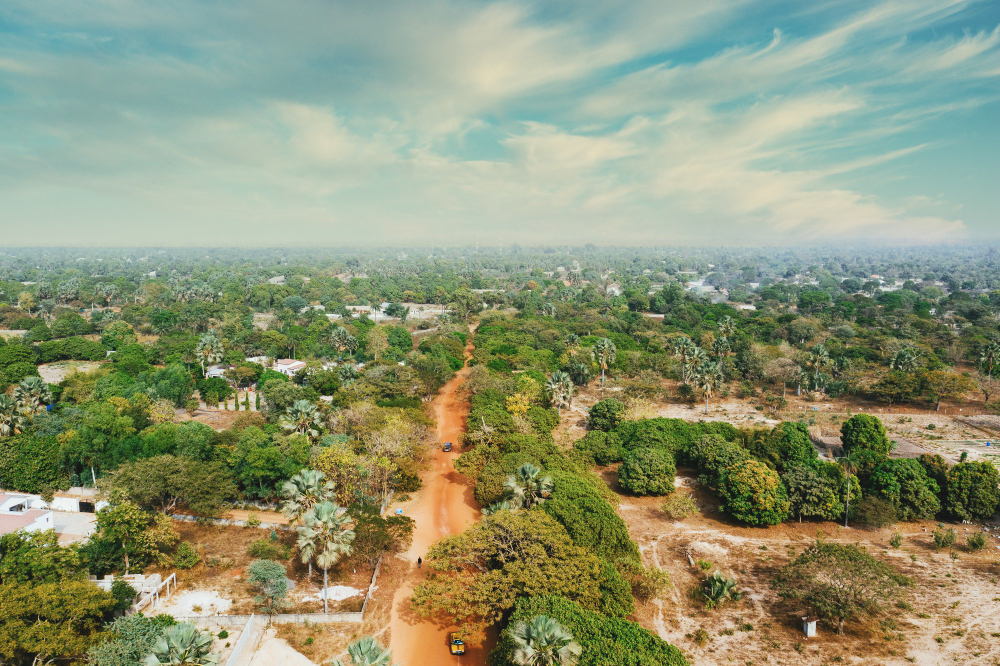
Guide to Investing in Real Estate in The Gambia
- By, Admin
- 07 Jun, 2024
Introduction
Investing in real estate can be a lucrative endeavor, and The Gambia is emerging as a promising destination for property investors. Nestled on the West African coast, this small nation offers a unique blend of affordability, potential for growth, and a welcoming investment climate. But why should you consider The Gambia for your next real estate investment? Let’s dive into the details.
Why Invest in Real Estate in The Gambia?
The Gambia's real estate market is currently under the radar but rapidly gaining attention. With relatively low property prices, a growing tourism industry, and favorable government policies, it presents an attractive opportunity for both local and international investors.
Overview of the Gambian Real Estate Market
The market is diverse, ranging from residential homes and luxury apartments to commercial properties and vast lands ripe for development. As tourism flourishes and infrastructure improves, property values are expected to rise, offering promising returns on investment.
Understanding The Gambia
Geographic and Economic Overview
The Gambia, the smallest country in mainland Africa, is bordered by Senegal and the Atlantic Ocean. Its economy is primarily driven by agriculture, tourism, and remittances from abroad. The capital city, Banjul, along with other urban centers like Serekunda, is experiencing gradual economic development and urbanization.
Cultural and Social Dynamics
The Gambian culture is rich and diverse, with a welcoming attitude towards foreigners. English is the official language, making communication relatively easy for international investors. The population is youthful, with a growing middle class that demands better housing and amenities.
The Benefits of Investing in Gambian Real Estate
Affordable Property Prices
Compared to many other markets, property in The Gambia is highly affordable. This allows investors to enter the market without a hefty initial outlay, making it accessible even to those with moderate budgets.
Growing Tourism Industry
The Gambia is known as "The Smiling Coast of Africa" and attracts thousands of tourists annually. The growing tourism industry fuels demand for rental properties, hotels, and other commercial real estate, presenting profitable investment opportunities.
Favorable Investment Climate
The Gambian government encourages foreign investment with favorable policies, including tax incentives and streamlined processes for property acquisition. This supportive environment makes it easier to invest and realize returns.
Types of Real Estate Investments in The Gambia
Residential Properties
From single-family homes to apartment complexes, residential properties cater to both locals and expatriates. Investing in these properties can generate steady rental income.
Commercial Properties
Office spaces, retail outlets, and hotels are among the commercial properties attracting investors. The rise in tourism and business activities increases the demand for these types of properties.
Land Investments
Buying land can be a long-term investment strategy. With the potential for future development, land values in growing areas can appreciate significantly over time.
Steps to Investing in Real Estate in The Gambia
Research and Market Analysis
Begin by thoroughly researching the market. Understand the local economy, property trends, and demographic factors that influence real estate values.
Legal Considerations and Due Diligence
It's crucial to understand the legal framework governing property transactions in The Gambia. Conducting due diligence ensures you are aware of any legal restrictions and property conditions.
Financing Your Investment
Determine how you will finance your investment. Options may include personal savings, mortgages, or partnerships. Explore local and international financing avenues.
Navigating Legal and Regulatory Requirements
Property Ownership Laws
In The Gambia, both locals and foreigners can own property. However, understanding the nuances of property ownership laws, including land leases and freeholds, is essential.
Taxes and Fees
Be aware of the taxes and fees associated with property transactions. This includes stamp duty, registration fees, and any applicable property taxes.
Hiring Legal Assistance
Engaging a local lawyer can help navigate the legal landscape. A lawyer can assist with due diligence, drafting contracts, and ensuring compliance with local laws.
Finding the Right Property
Working with Real Estate Agents
Local real estate agents can provide invaluable insights and access to property listings. They can help you find properties that meet your criteria and negotiate deals.
Property Listings and Viewings
Explore property listings through various channels, including online platforms and local advertisements. Schedule viewings to assess the condition and potential of the properties.
Negotiating and Making an Offer
Once you find a suitable property, negotiate the terms of the sale. Make a formal offer and be prepared to negotiate on price, payment terms, and other conditions.
Financing Your Real Estate Investment
Mortgage Options
Local banks and financial institutions offer mortgage options to both residents and foreigners. Compare interest rates and terms to find the best deal.
Foreign Investment Policies
The Gambian government’s policies favor foreign investors, but it's important to understand any restrictions or requirements that may apply.
Alternative Financing Methods
Consider alternative financing methods such as joint ventures, private lenders, or crowdfunding. These options can provide flexibility and access to capital.
Building and Renovating in The Gambia
Local Construction Standards
Familiarize yourself with local construction standards and regulations. Ensure that any building or renovation projects comply with these standards to avoid legal issues.
Finding Reliable Contractors
Hiring reliable contractors is crucial for successful building and renovation projects. Seek recommendations and check references to ensure quality workmanship.
Managing Construction Projects
Effective project management is essential to keep construction on schedule and within budget. Regularly monitor progress and address any issues promptly.
Managing Your Property
Property Management Services
Consider hiring property management services to handle day-to-day operations. This can include tenant management, maintenance, and rent collection.
Renting Out Your Property
Renting out your property can provide a steady income stream. Ensure your property is attractive to potential tenants by maintaining it well and setting competitive rental rates.
Maintenance and Upkeep
Regular maintenance and upkeep are vital to preserving property value and ensuring tenant satisfaction. Create a maintenance schedule and address repairs promptly.
Challenges of Investing in Gambian Real Estate
Market Volatility
The real estate market can be volatile, with fluctuations in property values. Stay informed about market trends and be prepared for potential risks.
Infrastructure Issues
Infrastructure in some areas of The Gambia may be underdeveloped. Consider the availability of essential services like water, electricity, and transportation when choosing a property.
Political and Economic Factors
Political stability and economic conditions can impact the real estate market. Keep abreast of local and regional developments that could affect your investment.
Tips for Successful Real Estate Investment in The Gambia
Networking and Building Relationships
Build relationships with local professionals, including real estate agents, lawyers, and contractors. Networking can provide valuable insights and opportunities.
Staying Informed About Market Trends
Regularly update yourself on market trends and economic conditions. This knowledge will help you make informed investment decisions.
Long-Term Investment Strategies
Consider long-term investment strategies rather than quick flips. Real estate in The Gambia can yield substantial returns over time with a patient and strategic approach.
Case Studies of Successful Investments
Residential Property
An investor purchased a residential property in Serekunda, renovated it, and rented it out to expatriates. The rental income provided a steady cash flow and the property's value appreciated over time.
Commercial Property
A small hotel was developed in a coastal area, capitalizing on the growing tourism industry. The investor saw significant returns during peak tourist seasons.
Land Development
An investor bought a large tract of land on the outskirts of Banjul, which was later developed into a residential community. The initial investment grew exponentially as the area developed.
Conclusion
Investing in real estate in The Gambia offers a unique blend of affordability, potential for growth, and a welcoming investment climate. By understanding the market, conducting due diligence, and navigating the legal landscape, you can capitalize on this emerging market. Whether you are looking for residential, commercial, or land investments, The Gambia has something to offer for every investor.



